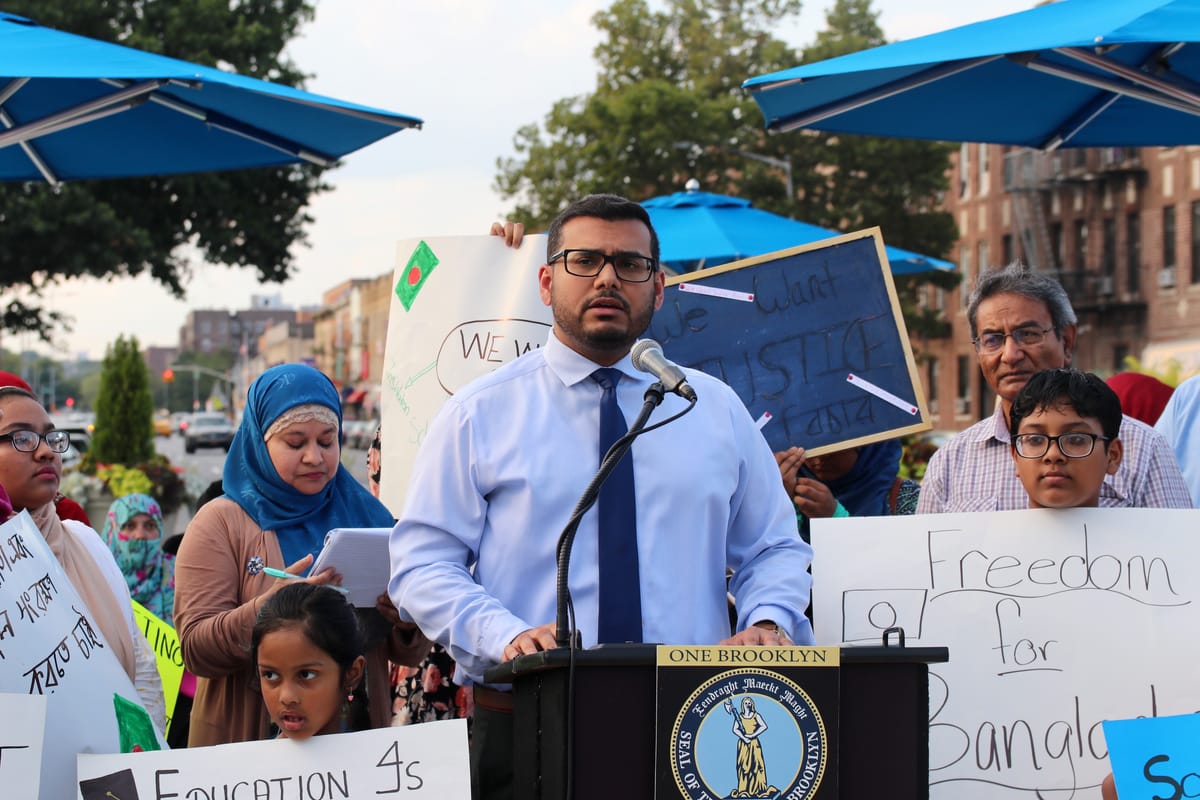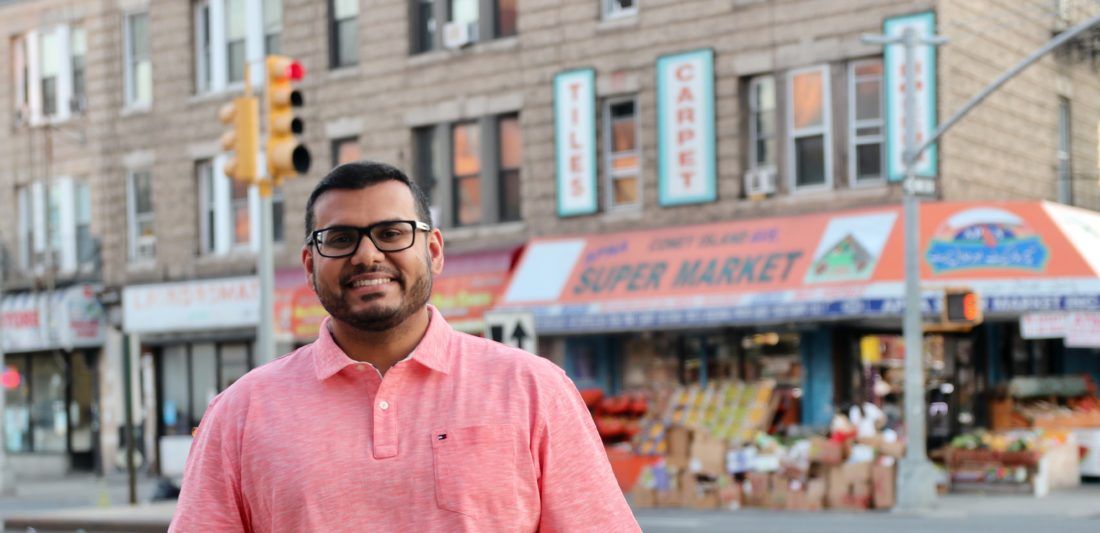What Kashif Hussain’s Run Meant To The Pakistani Community


DITMAS PARK – A few months ago, my dad told me there was a guy at Makki Masjid who spoke to the congregates after Jummah prayer. My dad said this guy was running for something, but he couldn’t remember what. He also couldn’t remember his name. “He’s Pakistani. He’s Muslim. He’s running for office in our community,” was what my dad said. I didn’t know who he was talking about. I am my family’s news pundit, but I had heard of no such person. I told my dad he probably heard wrong.
Days later, I interviewed him.
Kashif Hussain tells a story the Pakistani community can relate to. He immigrated to America when he was just 13. He got his education in New York by attending James Madison High School and getting his associates degree from Brooklyn College. He then went to City College of NY at the Grove School of Engineering to get his bachelors and masters degrees in mechanical engineering. He’s a family man. For a while, the banner on his Twitter account featured himself with his wife and two children.
He’s the kind of person Pakistani immigrant parents want their children to be.
There was a lot at stake in the 2018 Primary elections last week: Cynthia Nixon vs Andrew Cuomo, Kathy Hochul vs Jumaane Williams, Zephyr Teachout vs Tish James vs Sean Patrick Maloney vs Leecia Eve. Despite that, many Pakistanis on the Coney Island Avenue strip between Avenue H and Newkirk Avenue (the 44th Assembly District) were more concerned about their next District Leader.
A Pakistani Muslim man was running.
For an unpaid position, a District Leader has many roles – sitting on the Executive Committee of the Brooklyn Democratic Party, hiring poll workers and election inspectors, and advocating on behalf of the community.

Throughout the election season, I kept tabs on Hussain’s campaign. It intrigued me. I ran into him at a rally in Kensington. We shared hellos at the Pakistani American Youth Society headquarters when I was covering a Build the Block meeting. Here was a Pakistani Muslim person, like me, running for office. How could I not be intrigued? It turns out, many people shared the feeling.
The day of the election, I told my dad who he should vote for Governor, Lieutenant Governor, and Attorney General. “Yeah, yeah. I’m voting for Kashif Hussain,” he always responded. I rolled my eyes.
When we went out to cast our ballots, my dad met some friends on the way. “Did you vote yet? There’s a Pakistani on the ballot. He’s from our community. Kashif Hussain. Go vote for him!” he told them.
A Pakistani neighbor with her head wrapped in a dupatta (head covering) knocked on my door and asked me to check her friend’s polling site. She said she was gathering other Pakistani women to go and cast their vote for Hussain. My mom later told me this woman wasn’t even eligible to vote– but that did not stop her from getting other women to do so. Imagine a group of Pakistani women wearing their vibrant shalwar kameez, wrapped in a dupatta going to a poll site. Amazed is an understatement of what I was feeling.
My cousin who was voting for the first time called to ask about the candidates on election day. My dad told her to vote for Kashif Hussain. She lives on Long Island. I rolled my eyes again.
Hussain did not win. He lost to Doug Schneider, an attorney from Park Slope. To note, I did reach out to Schneider three times before the election for an interview.

Hussain did something I didn’t think could happen. He got the Pakistani community to become engaged in the political world. These people, many of whom have been living in the neighborhood for a long, long time, had never seen a brown person run for office before. Here was a person who loved the community, who attended the local mosques, who interacted with the people through his work, and who wanted to improve the neighborhood. Hussain mirrored them. There was finally someone they could relate to; someone who they felt actually cared about their needs. Hussain started a momentum, and it’s only upward from here. District Leader is an unpaid position that probably doesn’t mean much to a lot of people. It was a position the people of the community never heard about until Hussain. They wanted him to win.
In his conceding statement, he wrote, “Tonight is a victory for all of us! Tonight we came together as neighbors and citizens to exercise our civic duty at a scale that is truly remarkable. I am proud of what we have achieved, and promise you that this is just the beginning of a better future for our families, our children, and our neighbors! It may take two years until you see my name on your ballot again, but my 20 years of engagement in our community continues on from tomorrow.”
“Congratulations, Doug! I look forward to working with you to make all of our tomorrows better than our yesterdays!”
The early morning after the elections, my dad excitedly called home from work, not to ask who won the Governor, or Lieutenant Governor, or Attorney General position, but to ask if Hussain was our next District Leader. I said no. A few seconds of silence followed until he said, “That’s not good… is he going to run again?”



